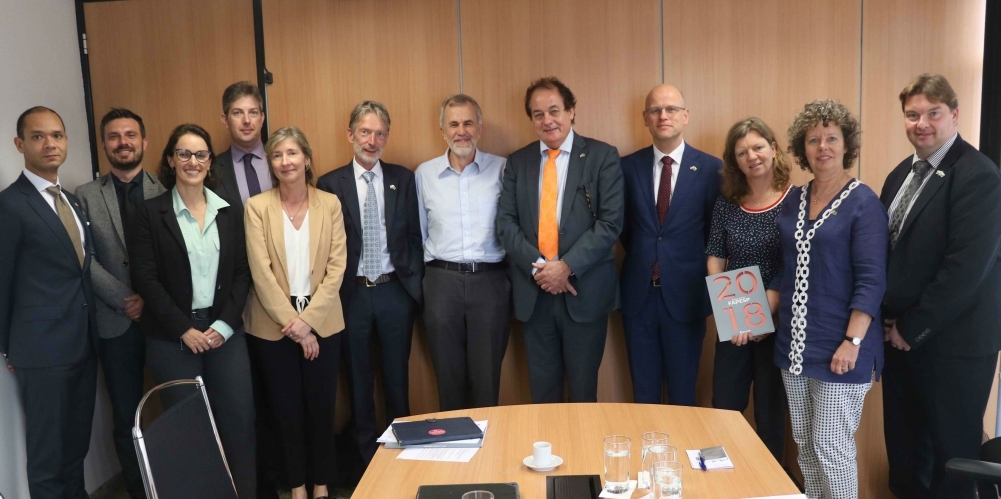

Eindhoven University of Technology focuses on innovation. Scientific and technological cooperation will be fostered by joint project funding (photo: Felipe Maeda / Agência FAPESP)
Eindhoven University of Technology focuses on innovation. Scientific and technological cooperation will be fostered by joint project funding.
Eindhoven University of Technology focuses on innovation. Scientific and technological cooperation will be fostered by joint project funding.

Eindhoven University of Technology focuses on innovation. Scientific and technological cooperation will be fostered by joint project funding (photo: Felipe Maeda / Agência FAPESP)
By Maria Fernanda Ziegler | Agência FAPESP – In December 2019, FAPESP announced the signing of a memorandum of understanding (MoU) to foster scientific and technological cooperation between researchers in São Paulo State, Brazil, and Eindhoven University of Technology (TU/e) in the Netherlands by jointly funding research projects.
“This is the second collaboration agreement we’ve signed with FAPESP. The first, signed in 2013, was excellent. It had highly positive results, and so we extended our collaboration to all nine departments of the university in this second agreement,” said Laurent Nelissen, TU/e’s Director of International Scientific Relations.
The nine departments at TU/e are Applied Physics, Biomedical Engineering, Built Environment, Chemical Engineering and Chemistry, Electrical Engineering, Industrial Design, Industrial Engineering and Innovation Sciences, Mathematics and Computer Science, and Mechanical Engineering.
“One of the things we focus on is innovation, which is very present in our university,” Nelissen said. “These partnerships and collaborations have yielded good results. We have a portfolio similar to FAPESP’s, focusing on programs for young researchers, innovation in cooperation with companies similar to the engineering research centers developed in São Paulo, and support for innovation by small enterprises, along similar lines to PIPE [the FAPESP Innovative Research in Small Business Program].”
Luiz Nunes de Oliveira, FAPESP’s Coordinator for Special Programs and Research Collaborations, recalled that the foundation has a long history of partnering with institutions in the Netherlands, especially with the Netherlands Organization for Scientific Research (NWO).
FAPESP and NWO have, on average, issued one call for proposals per year. They issued two in 2019: one for studies on healthy aging and the other for research projects on biomass conversion.
The meeting was also attended by Michiel Sweers, Deputy Director-General for Enterprise and Innovation at the Dutch Ministry of Economic Affairs and Climate Policy; Petra Smits, Netherlands Consul for Science, Technology and Innovation in Brazil; and Wim van den Doel, a member of NWO’s executive board.
Republish
The Agency FAPESP licenses news via Creative Commons (CC-BY-NC-ND) so that they can be republished free of charge and in a simple way by other digital or printed vehicles. Agência FAPESP must be credited as the source of the content being republished and the name of the reporter (if any) must be attributed. Using the HMTL button below allows compliance with these rules, detailed in Digital Republishing Policy FAPESP.





